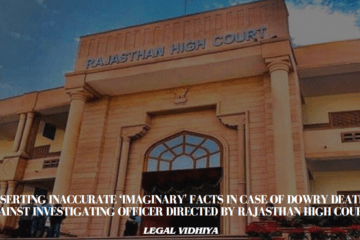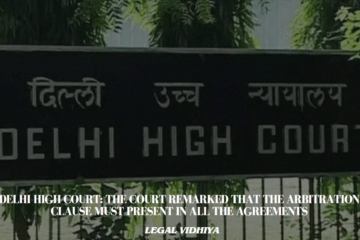
In a watershed moment for India’s democratic institutions, the Supreme Court recently rendered a seminal judgment on the contentious issue of Electronic Voting Machines (EVMs). The case, brought before the apex court by various petitioners and intervenors, sought to scrutinize the reliability and transparency of EVMs in the electoral process. The verdict, delivered by a bench of eminent justices, not only reaffirmed the sanctity of the electoral process but also underscored the imperative of adapting to technological advancements while safeguarding democratic principles.
At the heart of the legal debate lay the question of whether EVMs, hailed as technological marvels for streamlining the electoral process, were susceptible to manipulation and compromise. The petitioners, through their legal representatives, advanced compelling arguments positing that the integrity of EVMs could not be guaranteed, thereby casting doubt on the legitimacy of election outcomes. However, the Supreme Court, in its characteristic judiciousness, embarked on a meticulous examination of the evidence and legal precedents to arrive at a definitive conclusion.
Central to the court’s deliberations was an exhaustive analysis of the functioning and safeguards embedded within EVMs. The Hon’ble Justices, in their erudite exposition, elucidated the intricate mechanisms designed to thwart tampering and ensure the accuracy of voting results. Drawing upon expert testimony and empirical data, the court debunked allegations of systemic vulnerabilities and reaffirmed the robustness of EVMs in safeguarding the integrity of the electoral process.
Moreover, the judgment delved into the broader ramifications of reverting to traditional paper ballot systems, a proposition espoused by some stakeholders wary of technological risks. While acknowledging the concerns surrounding EVMs, the court adopted a forward-looking approach, emphasizing the inevitability of technological progress and the need for continual innovation. It underscored the imperative of striking a balance between embracing technological advancements and preserving the foundational principles of democracy.
In addition to its substantive analysis of EVMs, the Supreme Court’s verdict offered critical insights into the logistical complexities inherent in conducting elections in a vast and populous nation like India. With over 97 crore eligible voters spread across diverse geographical terrain, the electoral machinery faces unprecedented challenges in ensuring universal participation and integrity of the voting process. The court’s acknowledgment of these challenges underscores the need for pragmatic solutions and technological innovations to streamline electoral administration.
Furthermore, the judgment underscored the legal and constitutional framework underpinning elections in India, notably the Representation of the People Act, 1951. By reaffirming the non-negotiable obligations vested in the Election Commission of India (ECI) to conduct free, fair, and transparent elections, the court underscored the primacy of law in upholding democratic ideals. It emphasized the imperative of statutory compliance in safeguarding electoral integrity and ensuring public confidence in the electoral process.
A nuanced understanding of the principles of res judicata further enriched the court’s analysis, highlighting the delicate balance between legal precedent and evolving jurisprudence. While recognizing the importance of finality in legal proceedings, especially in matters of public interest, the court upheld the flexibility of Constitutional Courts to adjudicate novel issues with far-reaching implications. By navigating the intricate contours of electoral litigation, the court demonstrated its unwavering commitment to justice and equity in electoral matters.
the Supreme Court’s verdict on the challenge to EVMs represents a watershed moment in India’s democratic journey. By affirming the reliability and integrity of EVMs while advocating for continuous improvements, the court has reaffirmed its role as the guardian of democratic principles. As India strides confidently into the future, the judiciary’s steadfast commitment to electoral integrity serves as a bulwark against threats to the democratic edifice, ensuring that the voice of the electorate resonates unequivocally in the corridors of power.
In addition to its substantive analysis of EVMs, the Supreme Court’s verdict offered critical insights into the logistical complexities inherent in conducting elections in a vast and populous nation like India. With over 97 crore eligible voters spread across diverse geographical terrain, the electoral machinery faces unprecedented challenges in ensuring universal participation and integrity of the voting process. The court’s acknowledgment of these challenges underscores the need for pragmatic solutions and technological innovations to streamline electoral administration.
Furthermore, the judgment underscored the legal and constitutional framework underpinning elections in India, notably the Representation of the People Act, 1951. By reaffirming the non-negotiable obligations vested in the Election Commission of India (ECI) to conduct free, fair, and transparent elections, the court underscored the primacy of law in upholding democratic ideals. It emphasized the imperative of statutory compliance in safeguarding electoral integrity and ensuring public confidence in the electoral process.
A nuanced understanding of the principles of res judicata further enriched the court’s analysis, highlighting the delicate balance between legal precedent and evolving jurisprudence. While recognizing the importance of finality in legal proceedings, especially in matters of public interest, the court upheld the flexibility of Constitutional Courts to adjudicate novel issues with far-reaching implications. By navigating the intricate contours of electoral litigation, the court demonstrated its unwavering commitment to justice and equity in electoral matters.
Moreover, the verdict’s implications extend beyond the realm of electoral law, resonating deeply with broader debates surrounding democratic governance and technological innovation. In an era characterized by rapid technological advancements and evolving societal norms, the court’s affirmation of the efficacy of EVMs sends a powerful message about the need to embrace change while upholding foundational democratic principles. By striking a delicate balance between tradition and progress, the court has set a precedent for judicious adaptation to emerging challenges in the digital age.
Furthermore, the judgment’s emphasis on transparency and accountability in electoral administration underscores the judiciary’s role as a bulwark against authoritarian tendencies and institutional malaise. In an age of heightened scrutiny and public skepticism, the court’s unequivocal endorsement of electoral integrity reaffirms its commitment to safeguarding the democratic process from external threats and internal vulnerabilities. By fostering public trust in the electoral process, the judiciary plays a pivotal role in strengthening the foundations of democracy and upholding the rule of law.
In conclusion, the Supreme Court’s verdict on the challenge to EVMs represents a watershed moment in India’s democratic journey. By affirming the reliability and integrity of EVMs while advocating for continuous improvements, the court has reaffirmed its role as the guardian of democratic principles. As India strides confidently into the future, the judiciary’s steadfast commitment to electoral integrity serves as a bulwark against threats to the democratic edifice, ensuring that the voice of the electorate resonates unequivocally in the corridors of power.
Association for Democratic Reforms Vs. Election Commission of India
Name:Shristi Kumari, INTERN UNDER LEGAL VIDHIYA.
Disclaimer: The materials provided herein are intended solely for informational purposes. Accessing or using the site or the materials does not establish an attorney-client relationship. The information presented on this site is not to be construed as legal or professional advice, and it should not be relied upon for such purposes or used as a substitute for advice from a licensed attorney in your state. Additionally, the viewpoint presented by the author is of a personal nature




0 Comments